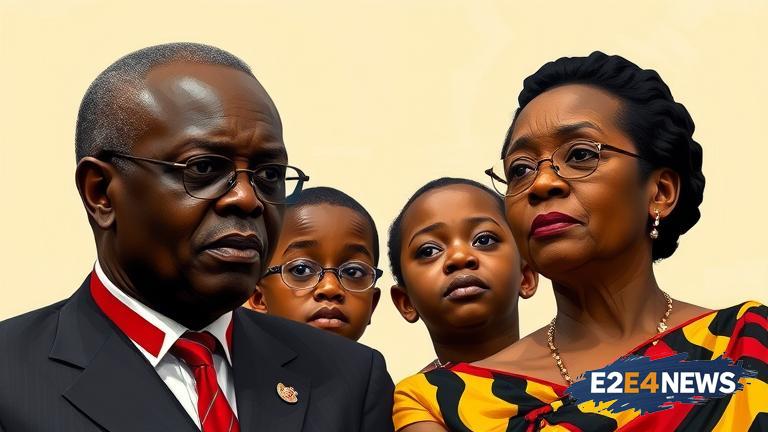The Museveni family, which has been at the helm of Uganda’s politics for over three decades, is facing criticism for what many perceive as a dynasty. Recently, Salim Saleh’s daughter, Maggie Kigozi Saleh, came to the defense of the family, arguing that they are being unfairly targeted. According to her, the family’s involvement in politics is not unique to Uganda and that many countries have had families with multiple members in politics. She also pointed out that the family has made significant contributions to the country’s development. However, critics argue that the family’s dominance of politics is unhealthy for democracy and that it undermines the principles of fairness and equality. The criticism is not new, as many have accused President Museveni of grooming his son, Muhoozi Kainerugaba, to succeed him. The president has denied these claims, but the perception persists. The debate has sparked a national conversation about the role of the presidential family in politics and the potential risks of a dynasty. Some argue that the family’s involvement in politics is a result of their commitment to public service, while others see it as a means of maintaining power and privilege. The issue is complex, with some pointing out that the family has brought stability and continuity to the country, while others argue that it has stifled competition and innovation. The Museveni family’s dominance of politics has also raised concerns about the concentration of power and the potential for abuse of authority. As the debate rages on, it is clear that the issue of the presidential family’s involvement in politics is a contentious one, with no easy answers. The country’s history, cultural context, and political landscape all play a role in shaping the discussion. While some see the family’s involvement as a natural progression, others view it as a threat to democracy and the rule of law. The role of the media, civil society, and opposition parties in shaping the narrative and holding the family accountable is also crucial. Ultimately, the future of Uganda’s politics and the role of the presidential family in it will depend on the choices made by the country’s citizens and leaders. The conversation is ongoing, with many calling for greater transparency, accountability, and inclusivity in the country’s politics. As the country navigates this complex issue, it is essential to consider the potential consequences of a dynasty and the importance of promoting democratic values and principles. The Museveni family’s response to the criticism, including Maggie Kigozi Saleh’s defensive remarks, has been seen as an attempt to deflect attention from the issue and maintain the family’s grip on power. However, the criticism is unlikely to go away, and the family will need to address the concerns of Ugandans if they are to maintain their legitimacy and credibility. The international community is also watching the situation closely, with some expressing concerns about the potential implications for regional stability and security. As the situation continues to unfold, it is clear that the issue of the presidential family’s involvement in politics is a critical one that requires careful consideration and nuanced analysis. The country’s future depends on it, and the choices made now will have far-reaching consequences for generations to come. The debate is not just about the Museveni family, but about the kind of country Uganda wants to be and the values it wants to uphold. It is a conversation that requires the participation of all stakeholders, including citizens, civil society, and the media. By engaging in this conversation, Ugandans can work towards creating a more just, equitable, and democratic society, where power is not concentrated in the hands of a few individuals or families, but is instead distributed fairly and accountable to the people.
